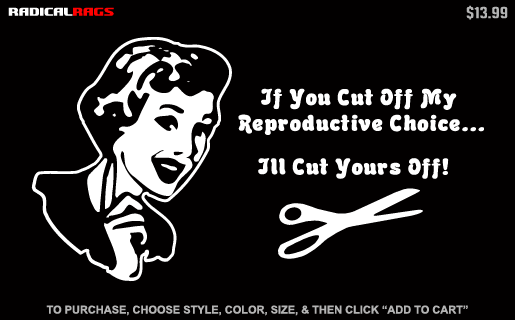 My clinic escort buddy Username Catbus recently posted reasons why clinic defense is a crummy volunteer gig, and why he does it anyway. His main points:
My clinic escort buddy Username Catbus recently posted reasons why clinic defense is a crummy volunteer gig, and why he does it anyway. His main points:a) You have to listen to racist jerks yell babykiller epithets at you and patients. Further reading: Our local antis created a handy manual on how to harass women on the street who might be "abortion-minded"But we continue to volunteer because it is generally the most meaningful and rewarding reason to wake up at 7am on a Saturday. Really, clinic defense is my favorite volunteer activity and I encourage everyone who's pro-choice to try it. In addition to the general warm fuzzy feelings you get from volunteering, consider:
b) It's boring and you risk sunburn/inclement weather/racist jerks
c) Clinic defense best suits volunteers with an even keeled temperament, so it's not for everyone, and
d) If you don't have an even keeled temperament, you're better off doing other prochoice work like lobbying or campaigning for progressive candidates, since clinic defense is just a band-aid for a bigger problem.
a) It's 8:30am. Sleepiness often trumps crankiness at antis.If you are in the DC area and want to become a clinic escort, contact the Washington Area Clinic Defense Task Force. If you are elsewhere, join FMF's Adopt-a-Clinic campaign and email campusteam (at) feminist (dot) org for help finding a provider. Comment below and let us know how you're supporting your friendly local abortion provider!
b) You get to socialize with cool people you might not ordinarily meet. I've met prochoice bloggers, Hill staffers, dog walkers, federal contractors, college kids, and legendary local escort Phil. Far better than okcupid or networking happy hours.
c) You can have a really productive Saturday when you wake up early. Counterpoint: When you go out that evening, your friends will be perky and you will fall asleep in the bar, if you're me.
d) There's no minimum time commitment for volunteering with DC area clinics. Commitment-phobes welcome.
e) No papercuts.
f) It will make you even more pro-choice. Even if you just go to a short volunteer training, you'll feel smarter and angrier about clinic harassment.
Photo of crisis-pregnancy-center-mobile: j-No on Flickr























